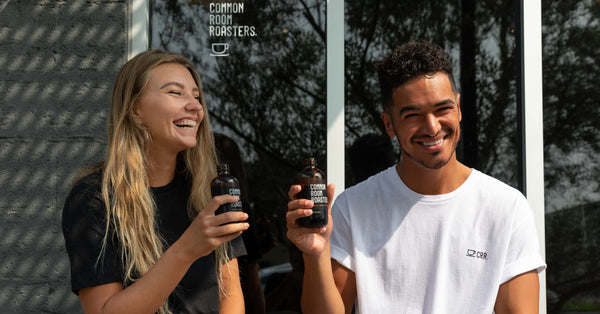When choosing between coffee and energy drinks, it helps to look at the ingredients. A standard cup of brewed coffee contains just two components: water and roasted coffee beans. It’s naturally low in calories, contains antioxidants like chlorogenic acid, and has been studied for potential health benefits, including improved cognitive function and reduced risk of certain chronic diseases. Energy drinks, by comparison, are typically formulated with synthetic caffeine, added sugars or artificial sweeteners, and other stimulants like taurine and guarana. Many also contain preservatives, dyes, and processed additives. For those looking to minimize ultra-processed inputs, coffee presents a simpler, more transparent option.

The experience of drinking coffee is also different by design. Coffee is an agricultural product with a flavor profile shaped by origin, elevation, and processing method. A washed Colombian might bring notes of caramel and stone fruit, while a natural Ethiopian leans bright and floral. These sensory details reflect terroir—not artificial flavoring. Energy drinks, on the other hand, rely on uniform taste engineered in a lab, often described as overly sweet or metallic. Coffee culture has also been linked to slower, more mindful consumption habits, while energy drinks are generally marketed for high-speed, on-the-go lifestyles.
In terms of caffeine delivery, the numbers are worth noting. An 8 oz cup of coffee contains roughly 80–100 mg of caffeine, offering a steady rise in alertness with minimal side effects for most people. Energy drinks range from 80 to over 300 mg per can and often include sugar or other stimulants that can amplify side effects like jitteriness or crashes. Several studies have raised concerns about the health impacts of excessive energy drink consumption, particularly in adolescents and young adults. When comparing both options, coffee provides a more moderate, reliable source of caffeine—along with fewer additives and a lower risk of overstimulation.
















